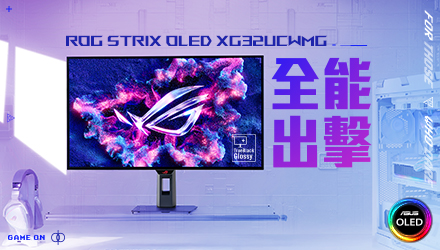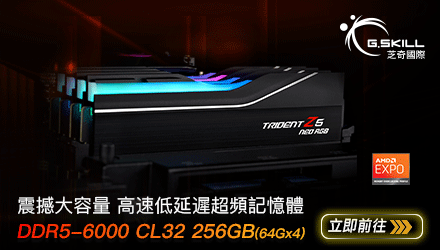
Intel 在最新的官方聲明中,表示目前正在向其 OEM / ODM 合作夥伴,分發適用於第 13 / 14 代桌上型 CPU 的最新微碼更新 0x129。此更新將解決對 CPU 的錯誤電壓請求,從而導致工作電壓升高,避免 CPU 受到高電壓影響出現不穩定狀況。
0x129 微碼將限制電壓請求不超過 1.55V
最新的微碼將透過新版 BIOS 進行更新,不會透過作業系統更新提供,Intel 也正在跟合作夥伴 (如 ASUS、MSI) 共同努力,確保及時驗證和推出新版 BIOS 更新。
在聲明中,Intel 表示除了延長保固範圍外,還發佈了三項與不穩定問題相關的緩解措施 (通常是應用程式持續性的崩潰和不斷的卡住),以改進 Intel 第 13 代和第 14 代桌上型 Core CPU 的客戶系統穩定性:
- 採用 Intel default 設定,以避免過高的功率傳輸影響 CPU (2024 年 5 月)。
- 微碼 0x125 修復 Core i9 CPU 中的 eTVB 問題 (2024 年 6 月)。
- 微碼 0x129 解決電壓升高問題 (2024 年 8 月)。
Intel 目前的分析發現,由於電壓升高,受影響處理器上多個核心的最低工作電壓 (Vmin) 顯著增加。升高的電壓事件會隨著時間的推移而累積,並導致處理器的 Vmin 增加。
最新的微碼 0x129 將限制電壓請求高於 1.55V,作為未出現不穩定問題的 CPU 的預防性緩解方案,主要改善 K / KF / KS CPU 的運作條件。 Intel 也確認,在經過廣泛的驗證後,所有未來的產品都不會受到此問題的影響,同時繼續研究可能導致潛在受影響的 CPU Vmin 變化情況的緩解方案,將於八月底之前提供更新。
效能影響方面,Intel 以 Intel default 設定的內部測試結果,於 3DMark:Timespy、WebXPRT 4、Cinebench R24、Blender 4.2.0 等性能基準測試中,顯示微碼更新對效能的影響在運作差異範圍內。不過其中一些子測驗顯示有中等影響,例如 WebXPRT Online Homework、PugetBench GPU Effects Score。至於遊戲運作負載測試,效能表現同樣處於運作差異範圍內,例如《Cyberpunk2077》、《古墓奇兵:暗影》、《Total War : Warhammer III – Mirrors of Madness》,但在 Hitman 3 : Dartmoor 中顯示出稍微更大的影響。 然而,系統性能取決於硬體規格和其他幾個因素。
即使更新到 0x129 微碼,Intel 依然不會阻止使用 K 系列 CPU 的使用者進行超頻。如果使用者希望將電壓提升至 1.55V 以上,可以在 BIOS 中停用 eTVB 設定。Intel 建議使用者在超頻 CPU 時謹慎行事,因為超頻可能會使保固失效或影響系統運作狀況。因此,Intel 推薦第 13 代和第 14 代桌上型 Core CPU 的客戶使用 Intel default 設定。
聲明的最後,Intel 重申該公司對於他們的產品有信心,並致力於為受影響的客戶提供支援。若客戶有遇到 CPU 穩定性問題,盒裝 CPU 可向 Intel 報修,散裝則聯繫購買通路,OEM / SI 機種請跟製造商尋求支援。
原文如下:
Intel is currently distributing to its OEM/ODM partners a new microcode patch (0x129) for its Intel Core 13th/14th Gen desktop processors which will address incorrect voltage requests to the processor that are causing elevated operating voltage.
For all Intel Core 13th/14th Gen desktop processor users: This patch is being distributed via BIOS update and will not be available through operating system updates. Intel is working with its partners to ensure timely validation and rollout of the BIOS update for systems currently in service.
Instability Analysis Update – Microcode Background and Performance Implications
In addition to extended warranty coverage, Intel has released three mitigations related to the instability issue – commonly experienced as consistent application crashes and repeated hangs – to help stabilize customer systems with Intel Core 13th and 14th gen desktop processors:
1. Intel default settings to avoid elevated power delivery impact to the processor (May 2024)
2. Microcode 0x125 to fix the eTVB issue in i9 processors (June 2024)
3. Microcode 0x129 to address elevated voltages (August 2024)Intel’s current analysis finds there is a significant increase to the minimum operating voltage (Vmin) across multiple cores on affected processors due to elevated voltages. Elevated voltage events can accumulate over time and contribute to the increase in Vmin for the processor.
The latest microcode update (0x129) will limit voltage requests above 1.55V as a preventative mitigation for processors not experiencing instability symptoms. This latest microcode update will primarily improve operating conditions for K/KF/KS processors. Intel is also confirming, based on extensive validation, all future products will not be affected by this issue.
Intel is continuing to investigate mitigations for scenarios that can result in Vmin shift on potentially impacted Intel Core 13th and 14th Gen desktop processors. Intel will provide updates by end of August.
Intel’s internal testing – utilizing Intel Default Settings - indicates performance impact is within run-to-run variation (eg. 3DMark: Timespy, WebXPRT 4, Cinebench R24, Blender 4.2.0) with a few sub-tests showing moderate impacts (WebXPRT Online Homework; PugetBench GPU Effects Score). For gaming workloads tested, performance has also been within run-to-run variation (eg. Cyberpunk 2077, Shadow of the Tomb Raider, Total War: Warhammer III – Mirrors of Madness) with one exception showing slightly more impact (Hitman 3: Dartmoor). However, system performance is dependent on configuration and several other factors.
For unlocked Intel Core 13th and 14th Gen desktop processors, this latest microcode update (0x129) will not prevent users from overclocking if they so choose. Users can disable the eTVB setting in their BIOS if they wish to push above the 1.55V threshold. As always, Intel recommends users proceed with caution when overclocking their desktop processors, as overclocking may void their warranty and/or affect system health. As a general best practice, Intel recommends customers with Intel Core 13th and 14th Gen desktop processors utilize the Intel Default Settings.
In light of the recently announced extended warranty program, Intel is reaffirming its confidence in its products and is committed to making sure all customers who have or are currently experiencing instability symptoms on their 13th and/or 14th Gen desktop processors are supported in the exchange process. Users experiencing consistent instability symptoms should reach out to their system manufacturer (OEM/System Integrator purchase), Intel Customer Support (boxed processor), or place of purchase (tray processor) further assistance.
官方翻譯系統對照版:
英特爾酷睿第 13 代和第 14 代台式機處理器的微碼 (0x129) 更新
英特爾目前正在向其 OEM/ODM 合作夥伴分發用於其英特爾酷睿第 13 代/第 14 代臺式機處理器的新微碼補丁 (0x129),該補丁將解決導致工作電壓升高的處理器電壓錯誤請求。對於所有英特爾酷睿第 13 代/第 14 代台式機處理器使用者:此修補程式通過 BIOS 更新分發,無法通過作業系統更新提供。英特爾正在與其合作夥伴合作,以確保及時驗證和推出當前正在使用的系統的 BIOS 更新。
不穩定性分析更新 – 微碼背景和性能影響
除了延長保修範圍,英特爾發佈了與不穩定問題相關的三種緩解措施(通常表現為持續的應用程式崩潰和反覆掛起),以幫助穩定使用英特爾酷睿第 13 代和第 14 代台式機處理器的客戶系統:
1. 英特爾預設設置,以避免對處理器的功率傳輸影響(2024 年 5 月)
2. 微碼0x125修復 i9 處理器中的 eTVB 問題(2024 年 6 月)
3. 微碼0x129以解決高電壓問題(2024 年 8 月)英特爾的當前分析發現,由於電壓升高,受影響處理器上多個內核的最小工作電壓 (VMin) 顯著增加。升高的電壓事件會隨著時間的推移而累積,並導致處理器的 VMIN 增加。
最新的微碼更新 (0x129) 將限制高於1.55V的電壓請求,作為對不會出現不穩定癥狀的處理器的預防性緩解措施。此最新的微碼更新將主要改善 K/KF/KS 處理器的運行條件。英特爾還確認,根據廣泛的驗證,所有未來的產品都不會受到此問題的影響。
英特爾正在繼續研究可能導致 VMIN 偏移的場景的緩解措施,這些場景可能會受到影響Intel Core 第 13 代和第 14 代台式機處理器.英特爾將在 8 月底之前提供更新。
英特爾的內部測試(使用英特爾預設設置)表明,性能影響在運行變化範圍內(例如,3DMark:Timespy、WebXprt 4、Cinebench R24、Blender 4.2.0),還有一些子測試顯示中等影響(WebXprt 在線作業; Pugetbench GPU 效果分數)。對於經過測試的遊戲工作負載,性能也處於運行之間的變化範圍內(例如,“賽博朋克 2077”、“古墓麗影之影》、《全面戰爭:戰錘 III – 瘋狂之鏡》”),但有一個例外(《殺手 3:達特穆爾》)的影響略大。但是,系統性能取決於配置和其他幾個因素。
對於未鎖頻的英特爾酷睿第 13 代和第 14 代台式機處理器,此最新的微碼更新 (0x129) 將不如果用戶選擇超頻,請阻止他們超頻。如果使用者希望突破 1.55V 閾值,可以在他們的 BIOS 中禁用 eTVB 設置。與往常一樣,英特爾建議使用者在超頻其台式機處理器時謹慎行事,因為超頻可能會使他們的保修失效和/或影響系統健康。作為一般的最佳實踐,英特爾建議使用英特爾酷睿第 13 代和第 14 代台式機處理器的客戶使用英特爾預設設置.
鑒於最近宣佈的延長保修計劃,英特爾重申其對其產品的信心,並致力於確保所有在其第 13 代和/或第 14 代臺式機處理器上出現或當前出現不穩定癥狀的客戶在更換過程中得到支援。遇到持續不穩定癥狀的使用者應聯繫其系統製造商 (OEM/系統集成商購買) 、英特爾客戶支援 (盒裝處理器) 或購買地 (散裝處理器) 進一步的説明。














